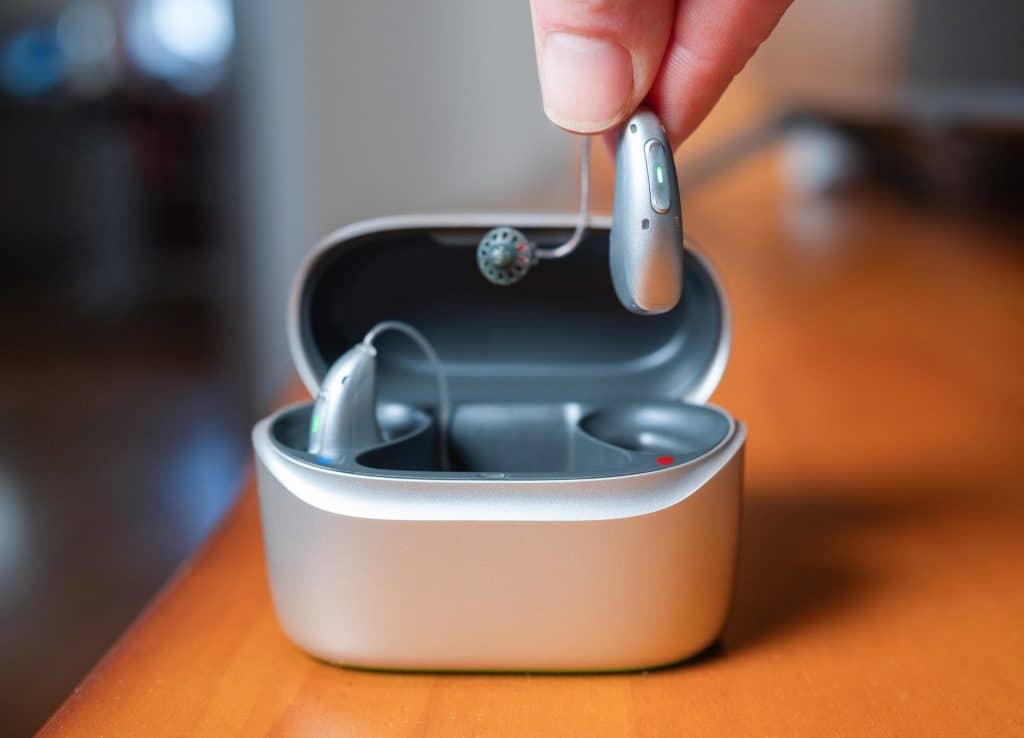
When selecting a hearing aid, one important choice is how it will be powered. Should you choose a model with traditional disposable batteries or opt for a rechargeable option? Both have their advantages, and the best choice depends on your daily routine, comfort level, and health needs. Understanding the differences can help you make a decision that’s both practical and cost-effective.
Disposable Batteries: Familiar and Widely Available
Disposable hearing aid batteries have been used for decades and remain a common choice. They are typically zinc-air batteries that come in small, colour-coded packages, making them easy to find at most pharmacies and grocery stores. Many people appreciate how quickly they can replace a dead battery, which is especially helpful if they are away from home.
However, disposable batteries usually last only a few days to a week, depending on how many hours per day you use your hearing aid and the device’s technology level. People with advanced features, such as Bluetooth streaming, may find batteries drain faster. Over time, the cost of buying packs of batteries adds up. Some individuals also find handling these small batteries challenging, particularly if they live with arthritis or reduced dexterity.
Rechargeable Batteries: Convenience and Sustainability
Rechargeable hearing aids are designed for ease of use. Much like charging a smartphone, you place your devices in a charging dock overnight, and by morning, they’re ready to go. For most users, a single charge provides power for a full day, even with heavy use. This eliminates the need to fumble with tiny batteries and reduces the chance of being caught off guard by a device suddenly dying in the middle of a conversation.
Rechargeables are also more eco-friendly. Since you’re not throwing away dozens of batteries every month, you reduce waste and your environmental footprint. Many people see this as a long-term advantage, especially as sustainability becomes a bigger priority. The main drawback is reliance on your charging system — if you forget to plug in overnight or travel without your charger, you may find yourself without power the next day.
Comparing Costs and Long-Term Value
Cost is another factor to consider. Disposable batteries are relatively inexpensive on a per-pack basis, but over the years, the expenses accumulate. Rechargeable hearing aids may cost more upfront, but they can save you money in the long run since you don’t need to purchase replacement batteries as often.
From a convenience perspective, rechargeables often win out. Instead of carrying spare packs, you simply rely on your nightly charging routine. However, if you frequently travel, camp, or spend extended time away from reliable electricity, disposable batteries may offer more flexibility.
Health and Safety Considerations
For some users, disposable batteries can pose safety risks, especially in households with young children or pets. Swallowing button batteries is dangerous and requires immediate medical attention. Rechargeable models avoid this risk entirely since they don’t require handling small, loose batteries.
Which Hearing Aid Power Option is Right for You?
There’s no universal answer — the best choice depends on your personal lifestyle. If you value predictability, sustainability, and convenience, rechargeable hearing aids may be the right fit. If you need the flexibility of quick swaps while on the go, or prefer not to rely on charging devices, disposables may suit your needs better.
Before making a decision, it’s essential to consult with a qualified professional. Registered audiologists can help you weigh your options, considering not just your hearing loss but also your daily activities, travel habits, and dexterity. For reliable information, you can explore resources such as the College of Audiologists and Speech-Language Pathologists of Ontario (CASLPO), the Canadian Academy of Audiology, or international sources like the World Health Organization’s hearing health pages.
At Toronto Family Hearing, our specialists provide tailored advice to ensure your hearing aid fits not only your medical needs but also your lifestyle. Whether you’re considering disposable batteries or rechargeable technology, our goal is to make the process clear and comfortable — helping you hear better, live better, and feel more confident every day.